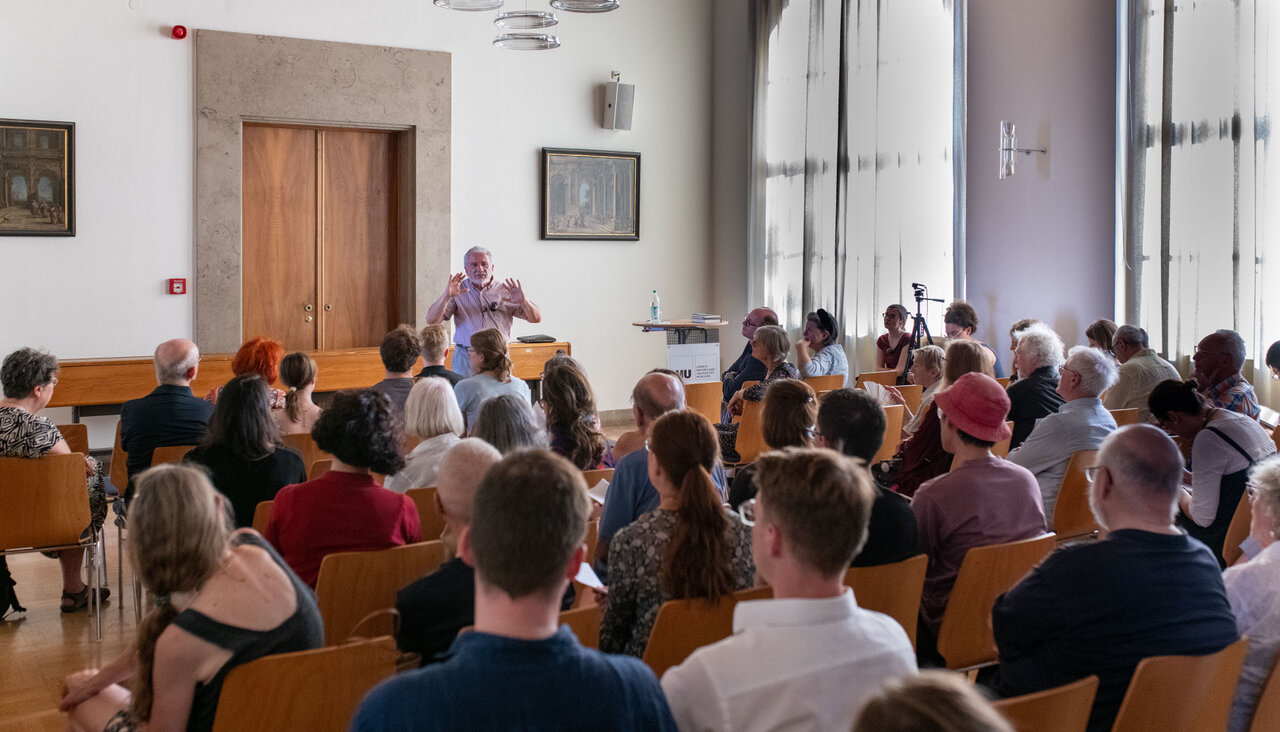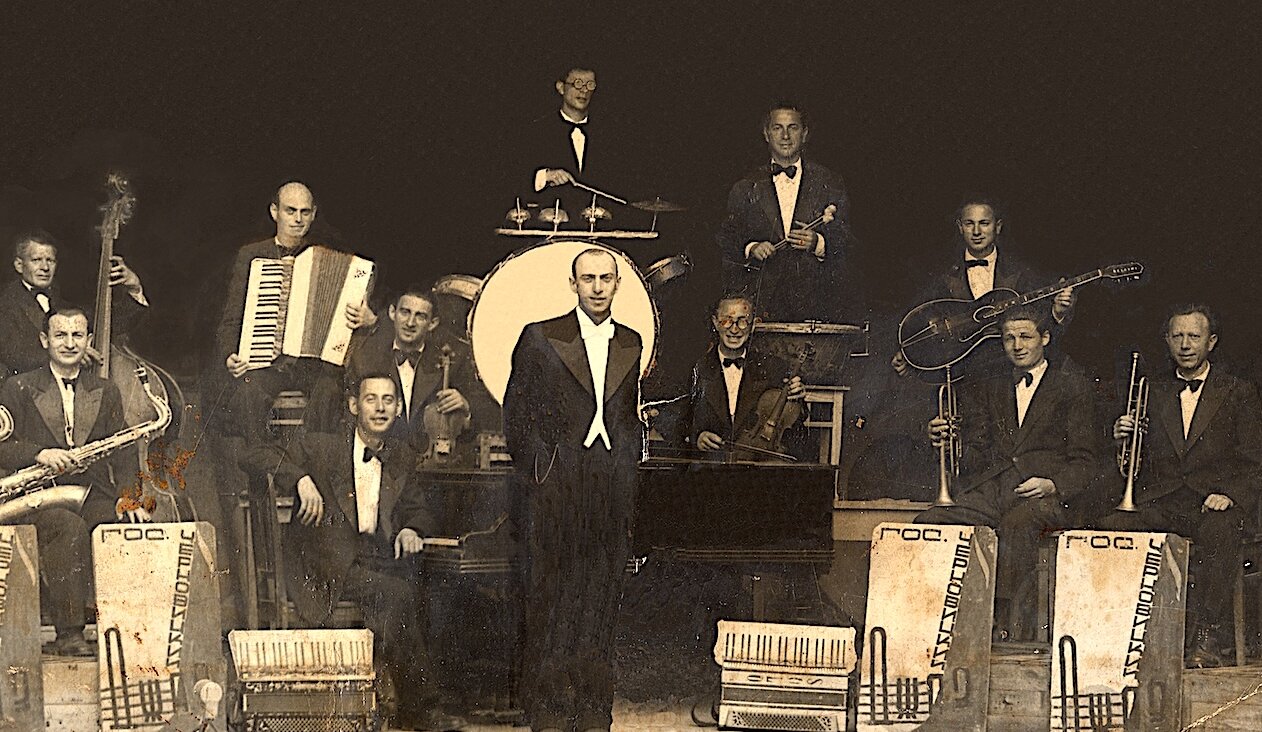ייִוואָ לאַנצירט אומפֿאָרמעלן „ייִדיש־קלוב“YIVO launches informal, interactive “Yiddish club”
אינעם ערשטן אָוונט וועט דער שרײַבער מײַקל וועקס רעדן אויף ענגליש וועגן דער ייִדישער קאָמעדיע און ענטפֿערן אויף פֿראַגעס פֿון די באַטייליקטע.

Image by YIVO
במשך פֿון דער קאָראָנאַ־ווירוס־תּקופֿה האָט דער ניו־יאָרקער ייִוואָ שוין געהאַט אַ סך הצלחה בײַם אַריבערפֿירן אירע קלאַסן אויף זום. ווי עס באַמערקן אָבער אַ סך מענטשן וואָס פֿירן אָן די טעג מיט קולטורעלע אַנשטאַלטן, איז פֿון דער ווײַטנס גרינגער צו האַלטן אַ רעפֿעראַט צי אַ קלאַס וווּ עס רעדט בלויז דער לערער, איידער פֿירן אַן אמתן שמועס מיט די צוהערער.
כּדי צו שאַפֿן אַן אָנלײַן־אַקטיוויטעט וואָס זאָל זײַן אַ ביסל ווייניקער פֿאָרמעל און געבן מענטשן אַ געלעגנהייט צו שמועסן איינער מיטן צווייטן, אָרדנט דער ייִוואָ אײַן אַ סעריע אומפֿאָרמעלע „זום“־פּראָגראַמען אויף ענגליש, מיטן נאָמען ”ייִדיש־קלוב“. אין די „ייִדיש־קלוב“־אָוונטן, וועט דער ייִדישער קאָמיקער און דירעקטאָר פֿונעם ייִדישן קולטור־קאָנגרעס — שיין בייקער — פֿירן שמועסן מיט פֿאַרשידענע געסט וואָס זענען אַקטיוו אויפֿן געביט פֿון ייִדיש.
דער עולם וועט אויך קענען שטעלן פֿראַגעס דעם גאַסט, רעדן מיט אַנדערע צוקוקער אויף אַן אומפֿאָרמעלן אופֿן און אַפֿילו זיך אַמפּערן אַ ביסל איינער מיטן צווייטן. דער ציל איז צו שאַפֿן אַ היימיש געפֿיל, אַזוי ווי בײַ די ייִוואָ־אונטערנעמונגען און קאַווע־שעהען געצילעוועט אויפֿן ניט־אַקאַדעמישן עולם.
אינעם ערשטן „ייִדיש־קלוב“ וועט בייקער שמועסן מיטן שרײַבער און איבערזעצער מײַקל וועקס וועגן דעם ייִדישן הומאָר בכלל און די פּורים־טראַדיציעס בפֿרט. די פּראָגראַם וועט פֿאָרקומען זונטיק, דעם 28סטן פֿעברואַר, 2:00 נאָך מיטאָג ניו־יאָרקער צײַט.
אינעם צווייטן „ייִדיש־קלוב“, זונטיק, דעם 14טן מאַרץ, 2:00 נאָך מיטאָג ניו־יאָרקער צײַט, וועט די זשורנאַליסטקע און דראַמאַטורגין רחל קפֿרסין רעדן וועגן די הײַנטיקע שאַפֿער פֿון דער ייִדישער קולטור און זייערע צילן.
דער זינגער מרדכי־צבֿי ראָסל וועט אינעם דריטן „ייִדיש־קלוב“ רעדן וועגן דעם רעפּערטואַר פֿונעם גרויסן ייִדישן זינגער סידאָר בעלאַרסקי און וועגן דעם ייִדישן פֿאָלק־רעפּערטואַר בכלל.
די פּראָגראַמען זענען בחינם. כּדי צו באַקומען אַ דערמאָנונג וועגן זיי, פֿאַרשרײַבט זיך דאָ.























